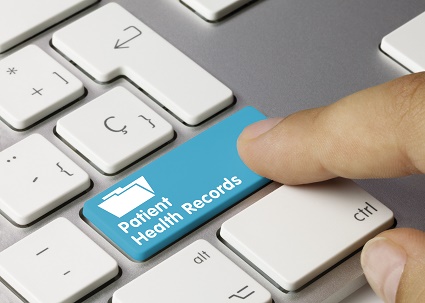Your cart is currently empty!

The HITECH Act and Your Website
Health Information Technology for Economic and Clinical Health, or the HITECH Act, is the name of a law put in place in 2009. We assume the government has special people employed to make up clever acronyms. In any case, this far-reaching legislation has implications for your website as well as for other aspects of your medical practice.
The regulations include HIPAA privacy regulations, as well as regulations of electronic medical devices under FDASIA. Software and apps that run on a computer, including both desktop and mobile devices, may be defined as “devices” under FDASIA (section 210(h)).
Some of the goals of HITECH are simple and straightforward: getting health records into electronic form and coming up with good ways to share that information among patients and health care professionals may not be easy, but it’s a clear goal. Other goals are less clear cut. For example, HITECH wants to “Protect and promote public health and healthy, resilient communities.” This sounds like an excellent goal, but it’s wide open to interpretation. Goals like using information to help patients make good lifestyle choices for their health, empowering patients and care-givers to make shared decisions, and making information more accessible to all are worthwhile goals, but a number of different strategies could be used.
Meaningful use requirements
“Meaningful use” is a big part of the HITECH Act. The idea is that medical professionals can’t just get their paper records into the computer and call it done. Patients must actually be helped and served by the electronic records and other digital health actions healthcare facilities take.
Meaningful includes “five pillars” of health technology and communication:
- Improve quality, safety, efficiency, and reduce health disparities
- Engage patients and families in their health
- Improve care coordination
- Improve population and public health
- Ensure adequate privacy and security protection for personal health information
The last item on the list, web security for personal health information, is often the top focus in conversations about meaningful use, possibly because it’s clear. Privacy and security are technical things that can be measured. How do you measure whether you’ve engaged your patients?
Some of the metrics for meaningful use have been quantified clearly: “Provide patients the ability to view online, download, and transmit their health information within 36 hours of hospital discharge,” for example. But some of the metrics seem arbitrary: do just 10% of your patients need educational materials? Why 10%?
Some metrics initially relied on the patients’ actually taking action, rather than on health professionals making it possible for patients to take action if they chose to. That’s normal for educational goals — and much of meaningful use comes down to education — but it’s frustrating for health professionals.
What can your website do for you?
Linking your website to a certified EHR patient portal allows you to use one website to handle many of the requirements.
Some of our clients feel that using a certified EHR portal is not cost effective for their needs and their practices. They often still want to gain the benefits of a quality medical practice website:
- Patient education and engagement
- Streamlined practice workflow
- Maintained or growing practice
- Online reputation management
The HITECH Act and HIPAA are still relevant.
See the current updates and changes in requirements.
by
Tags:

Leave a Reply